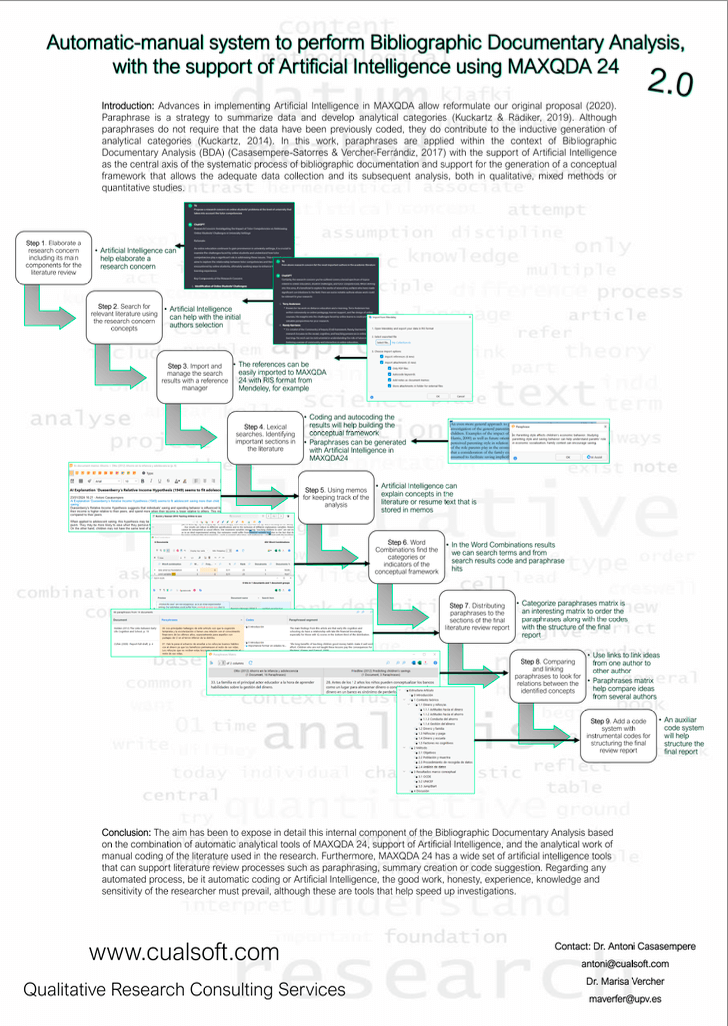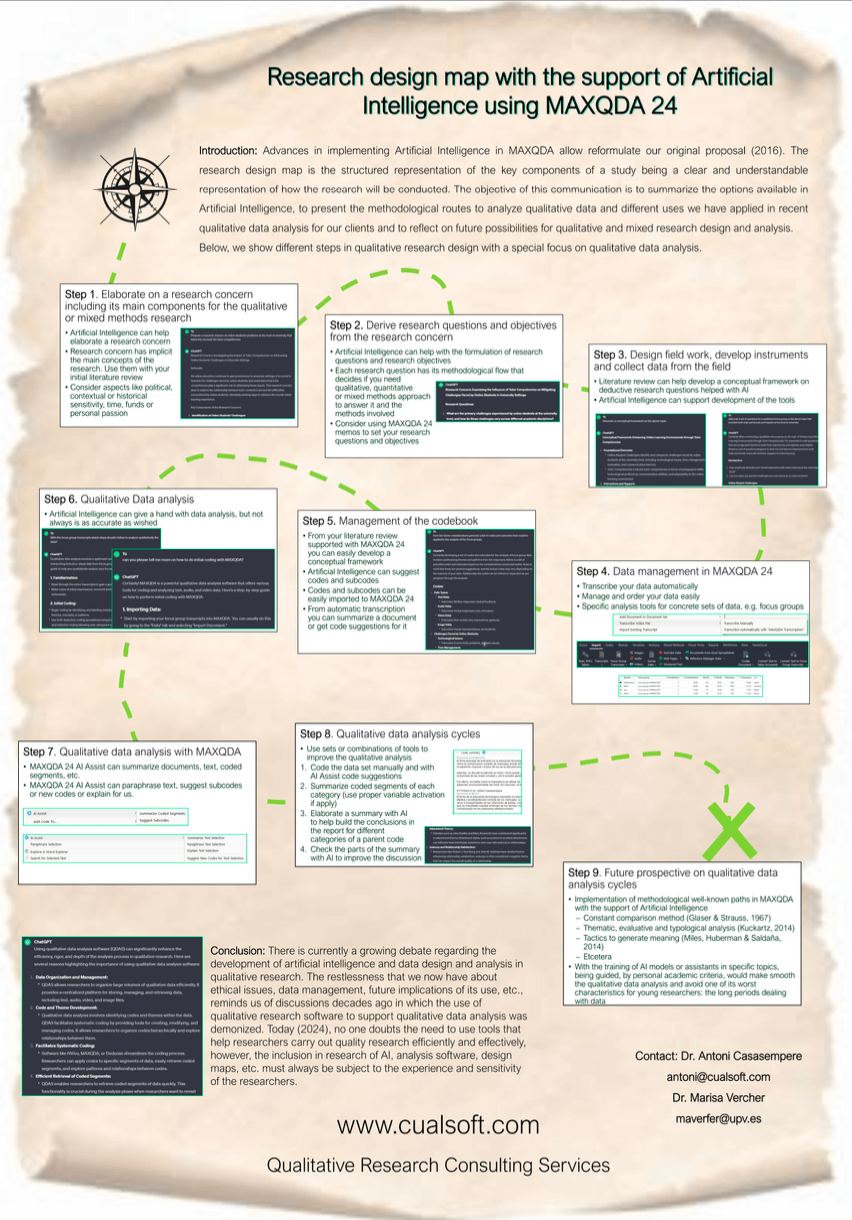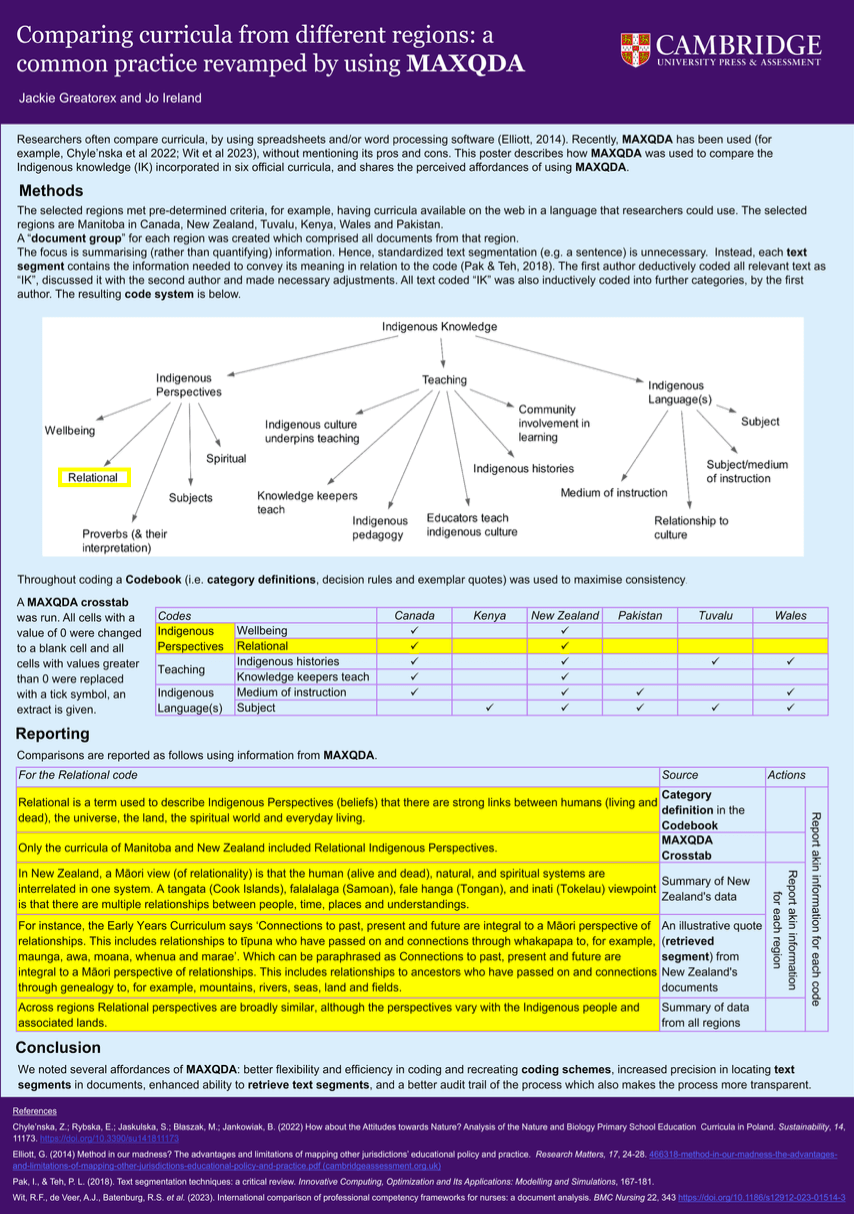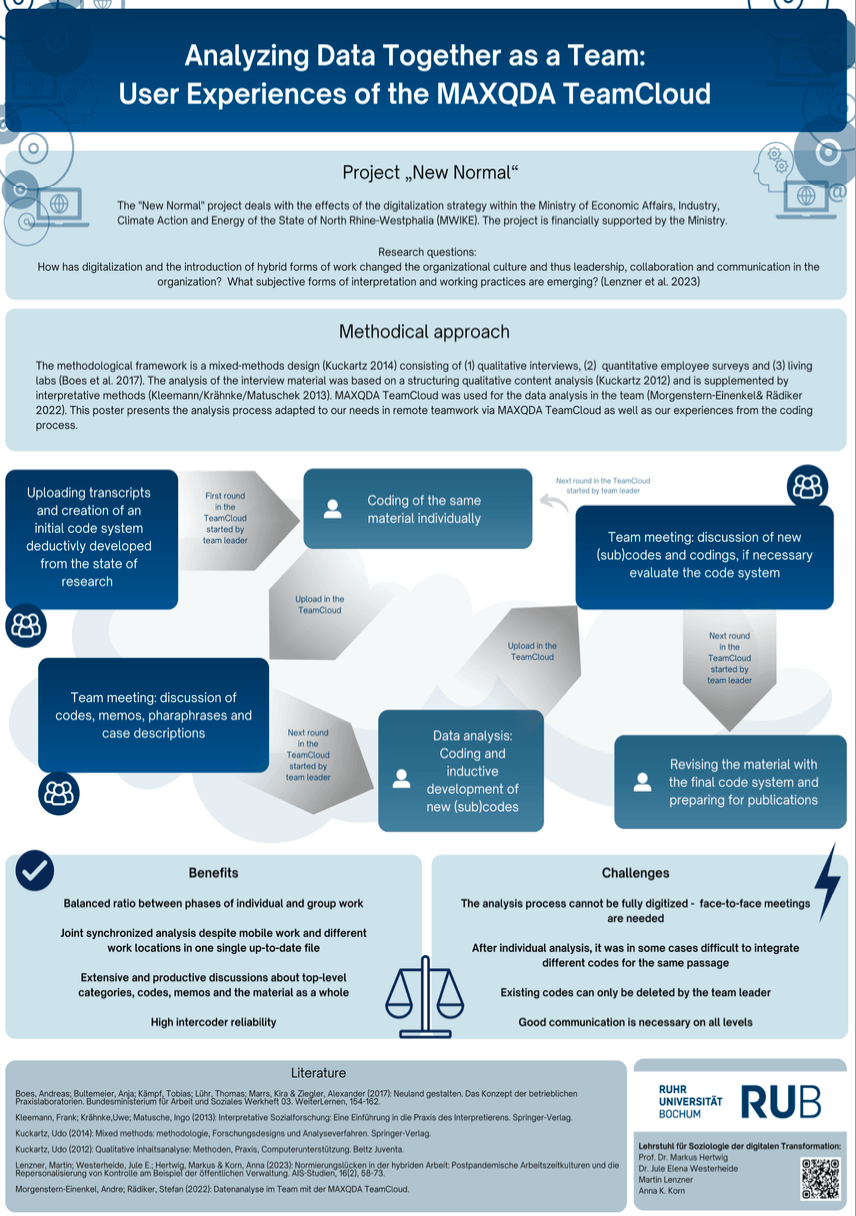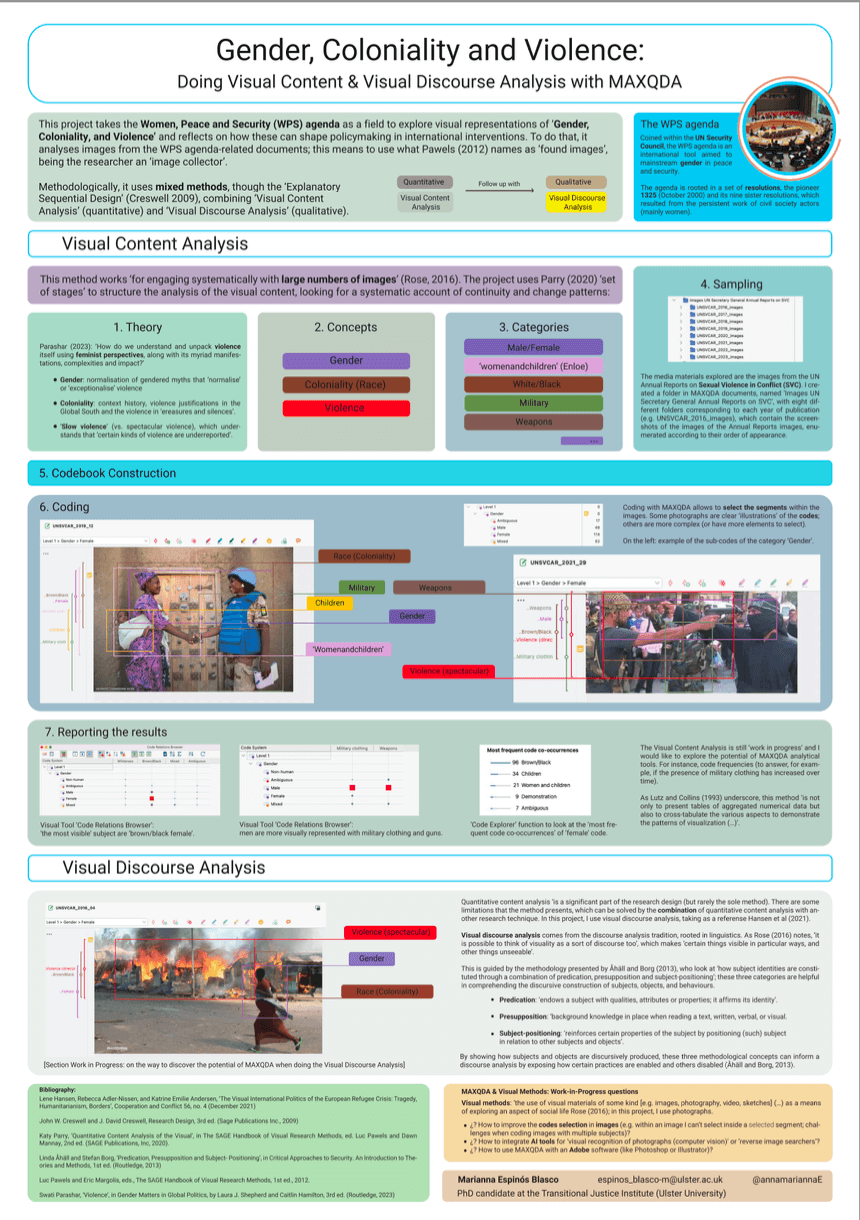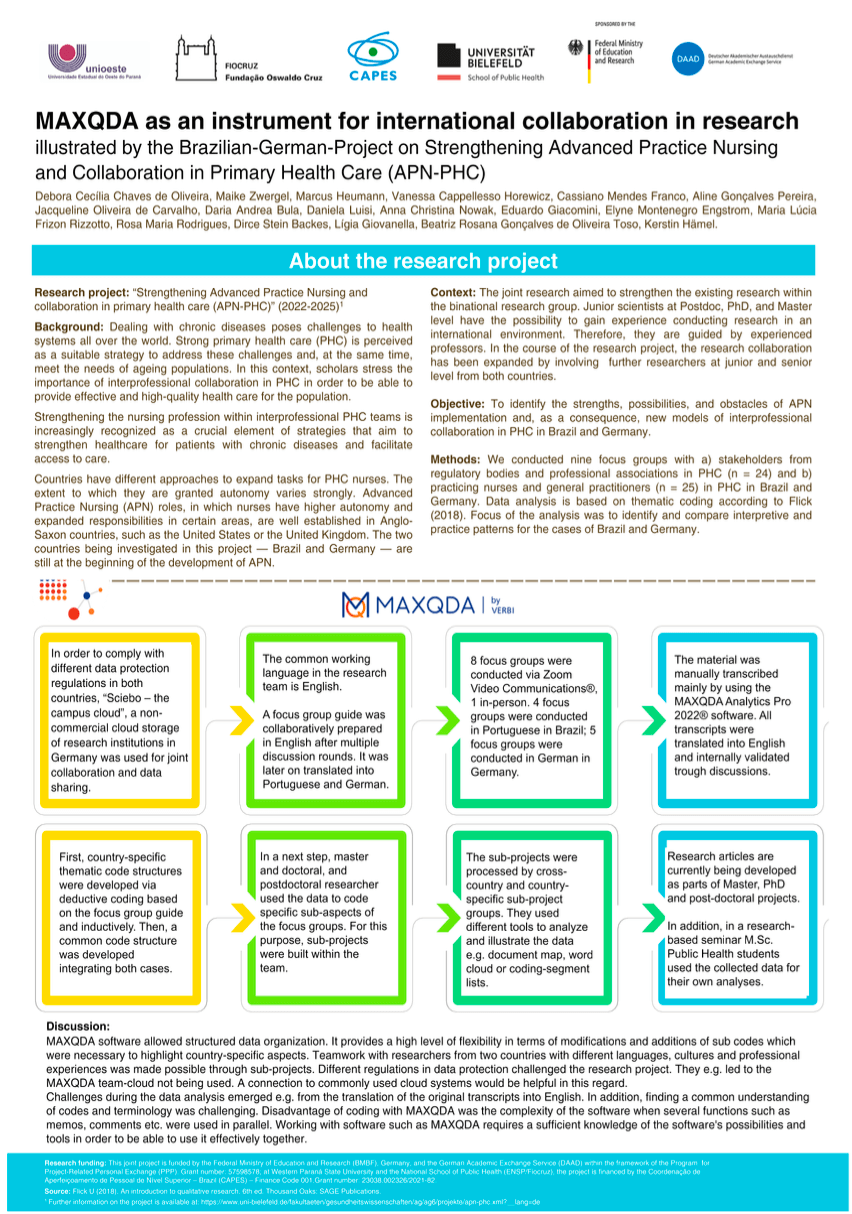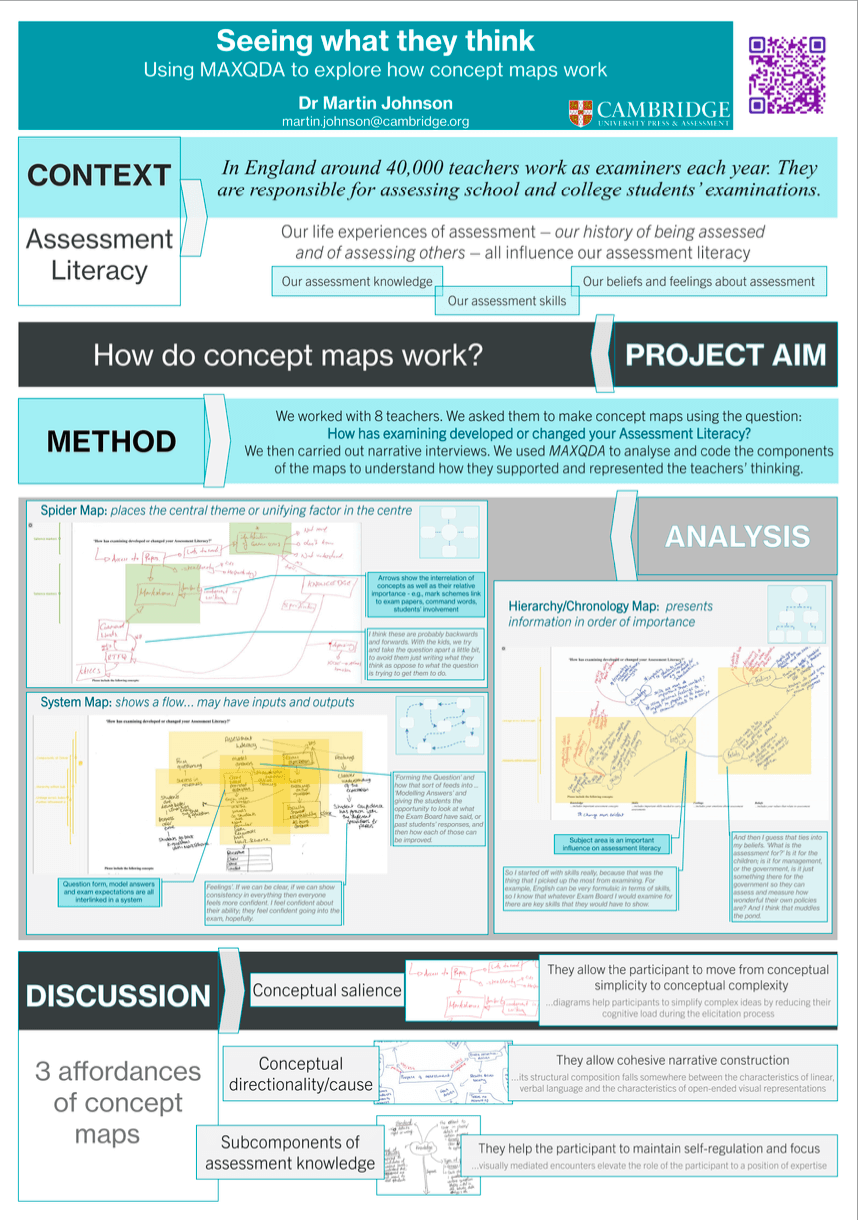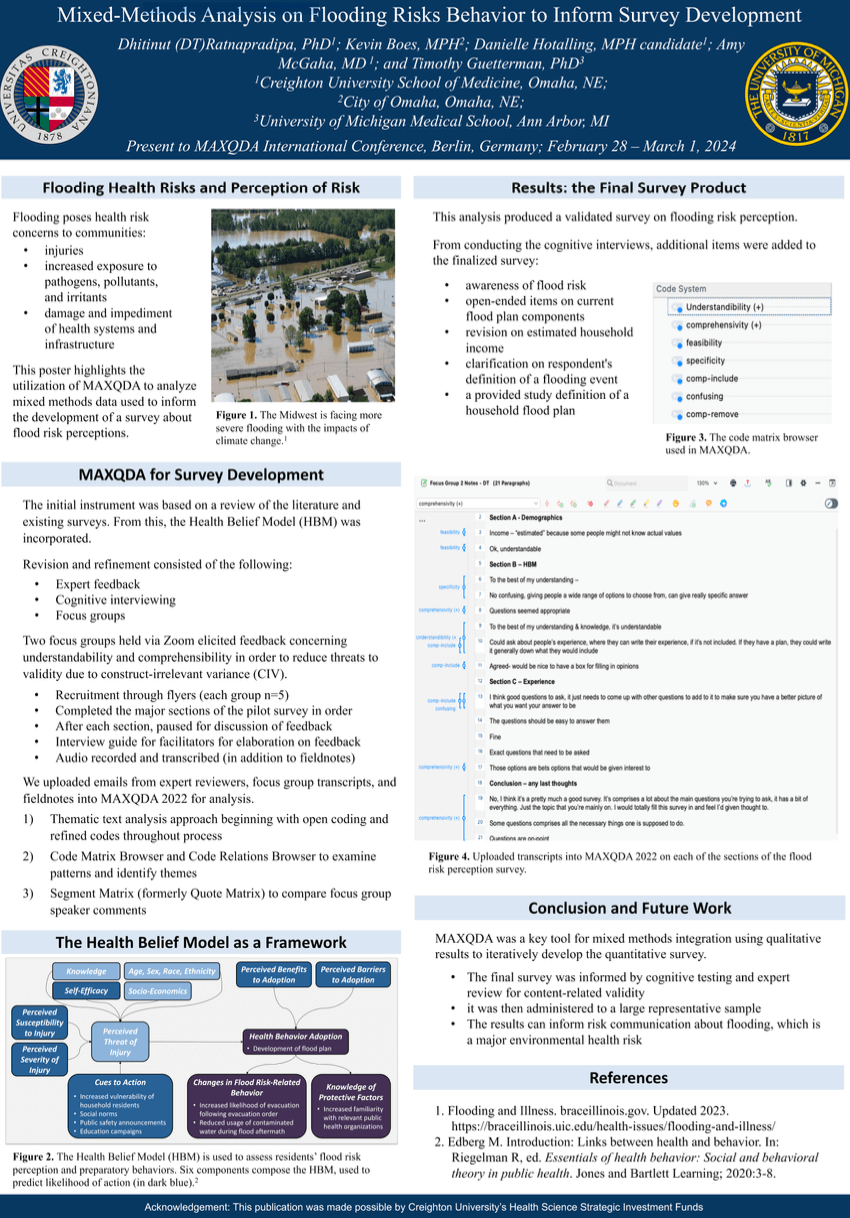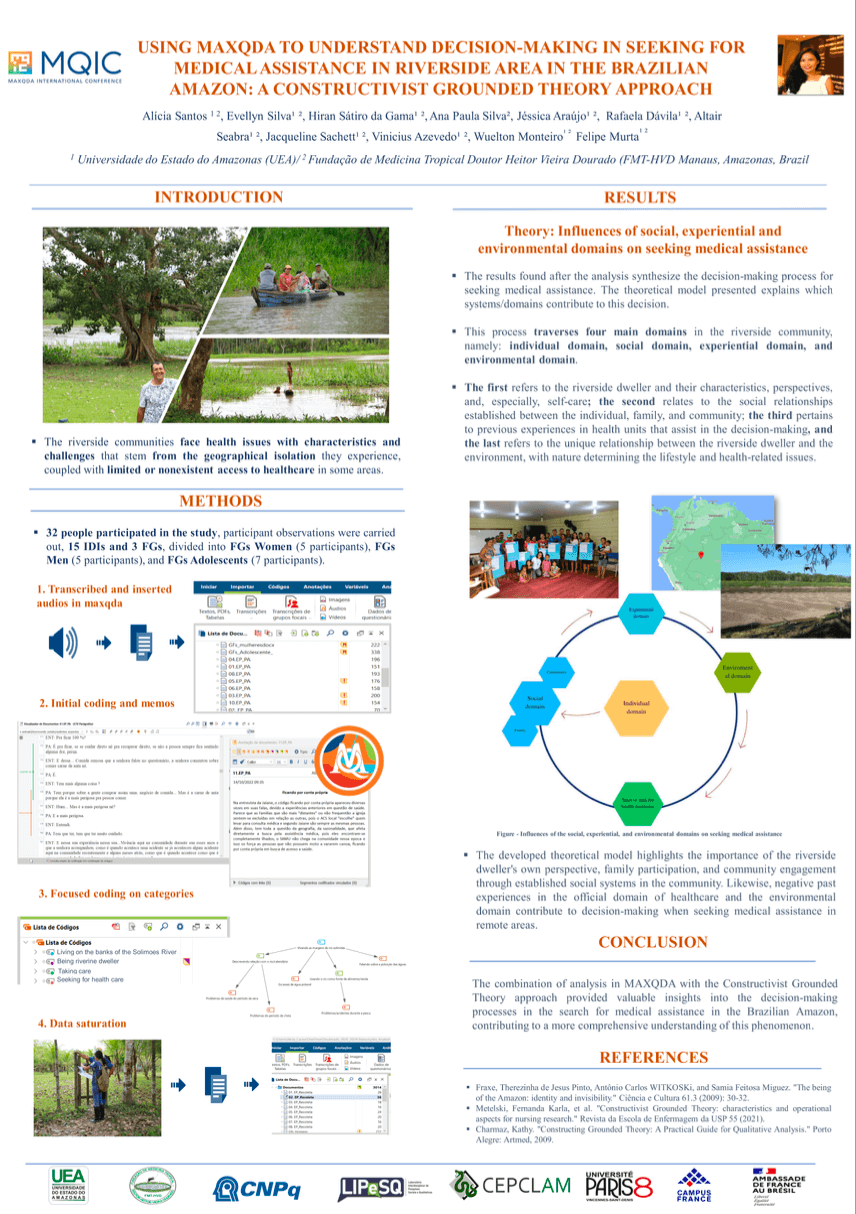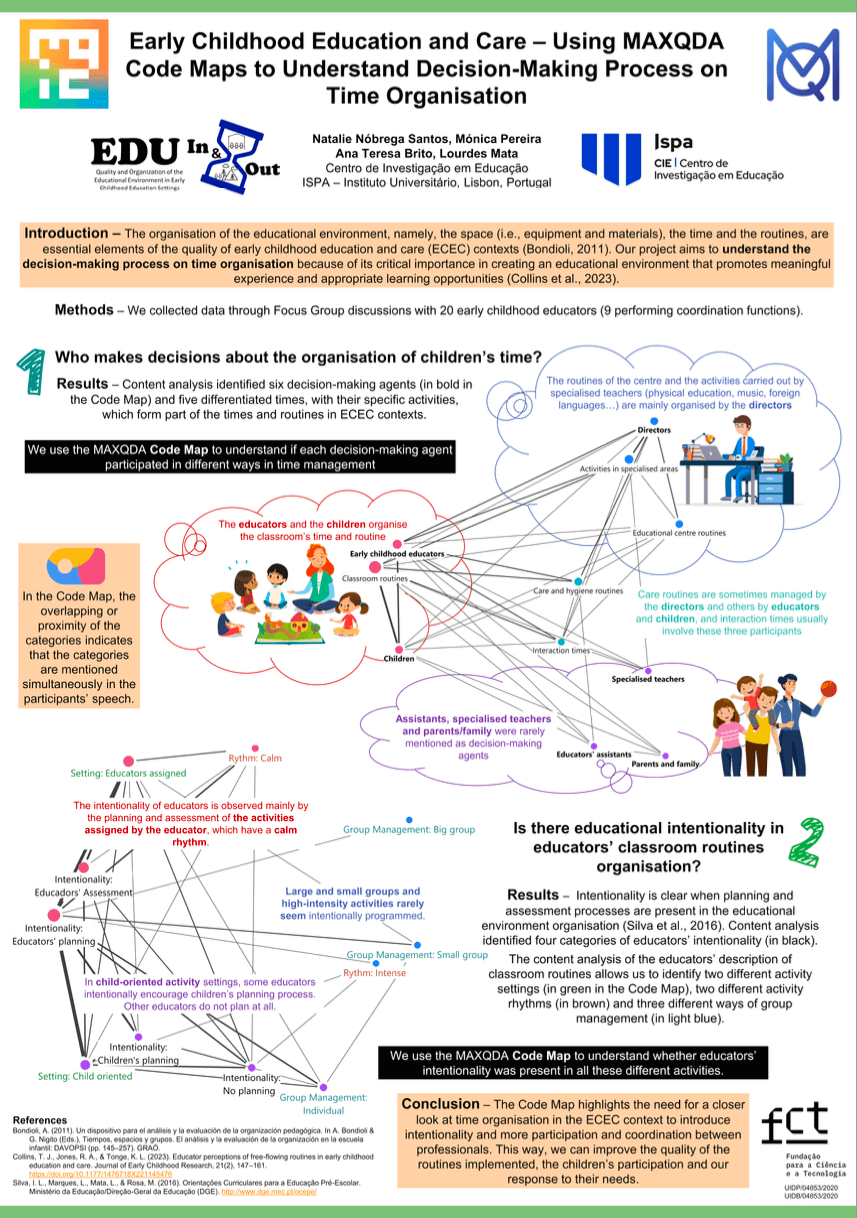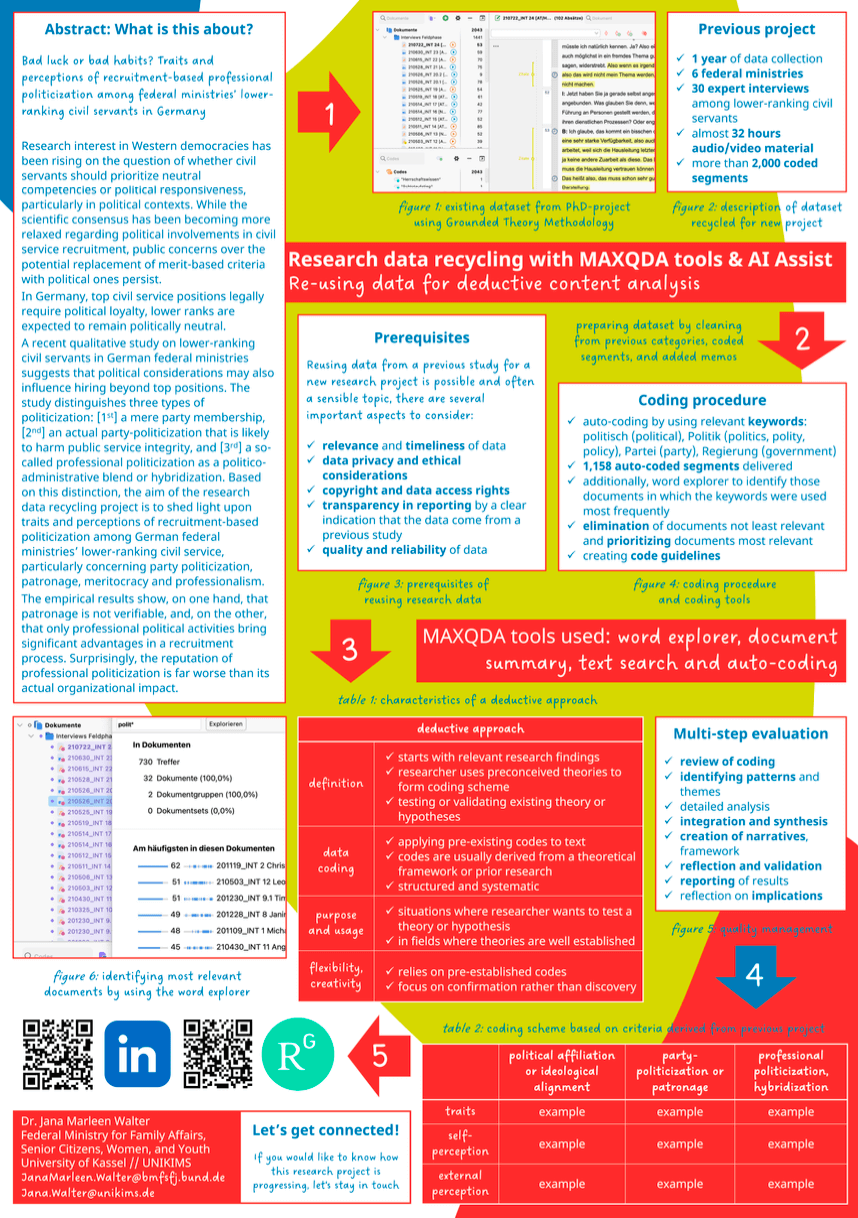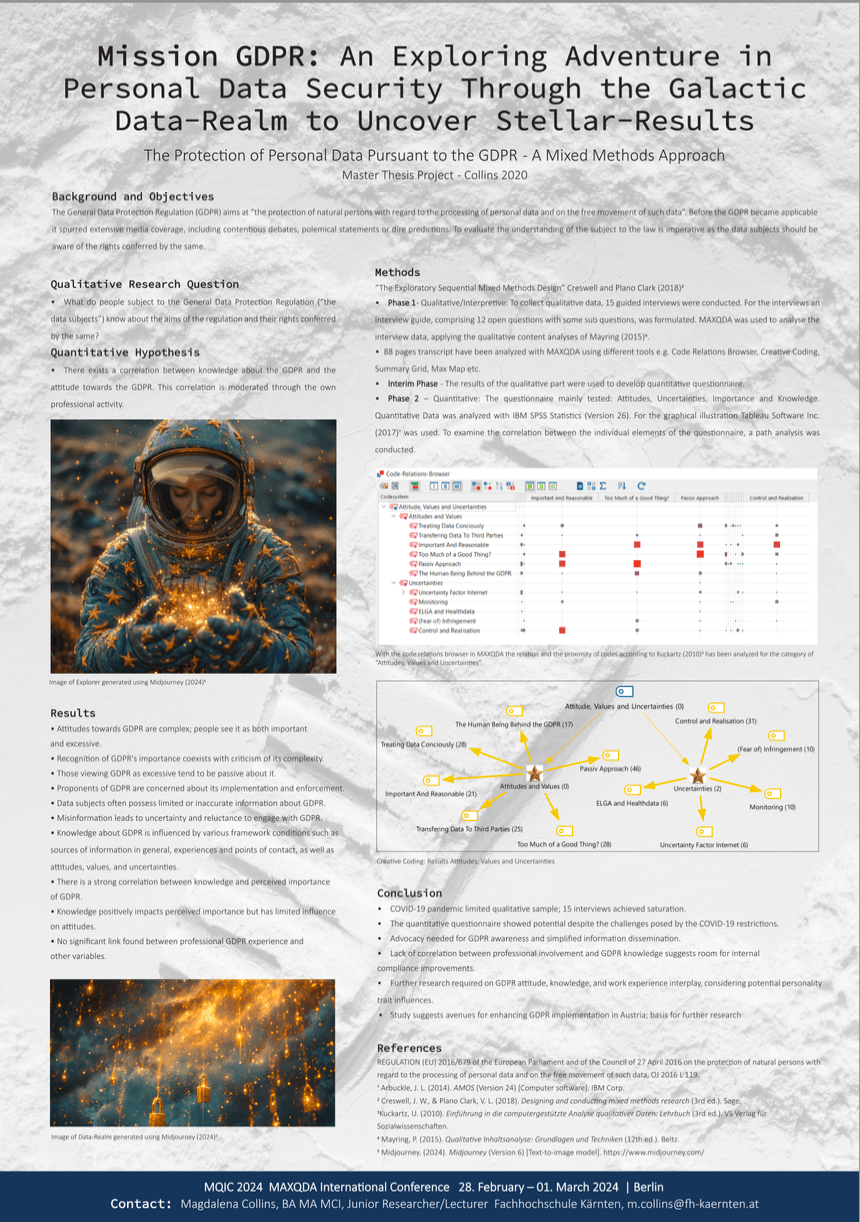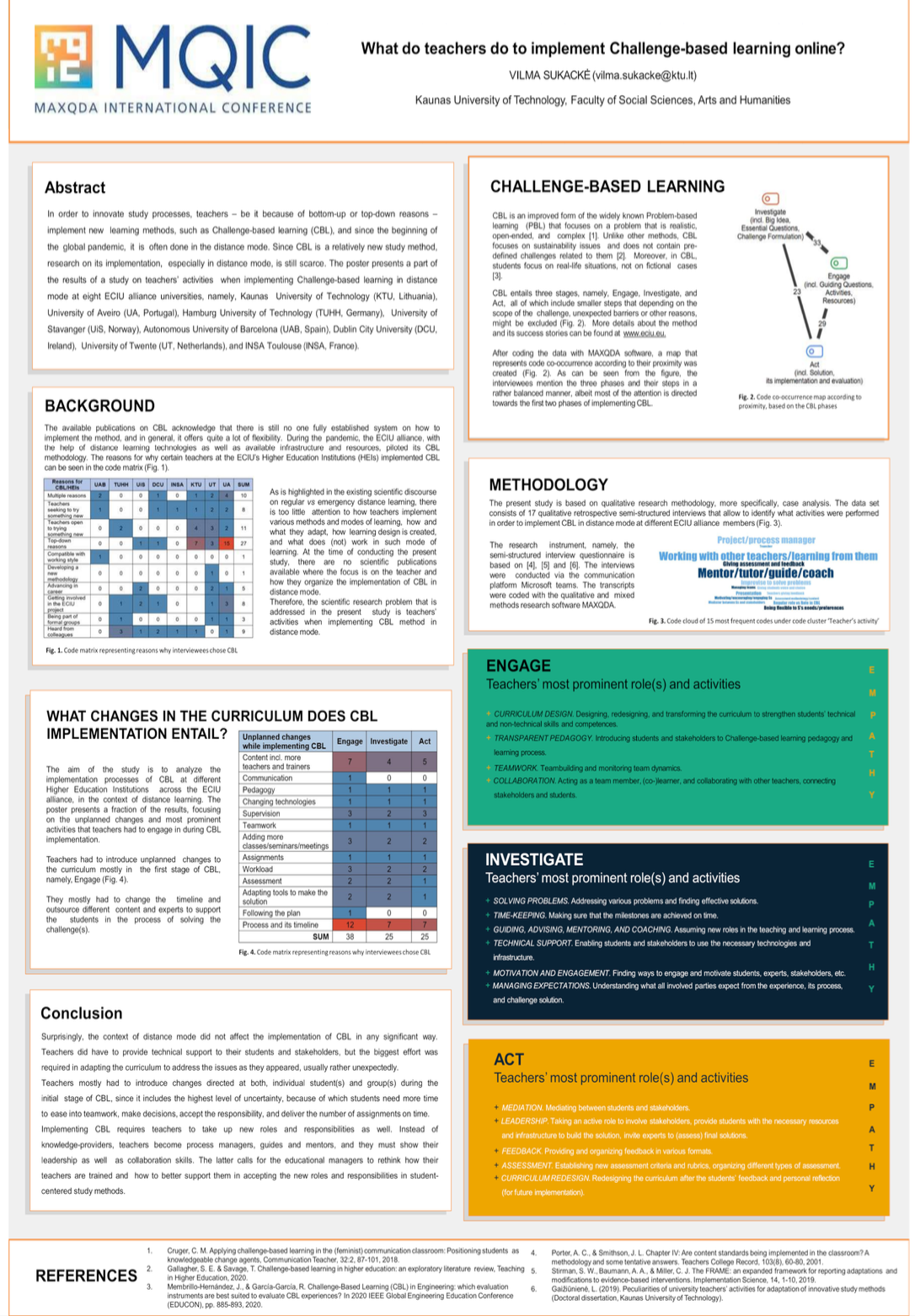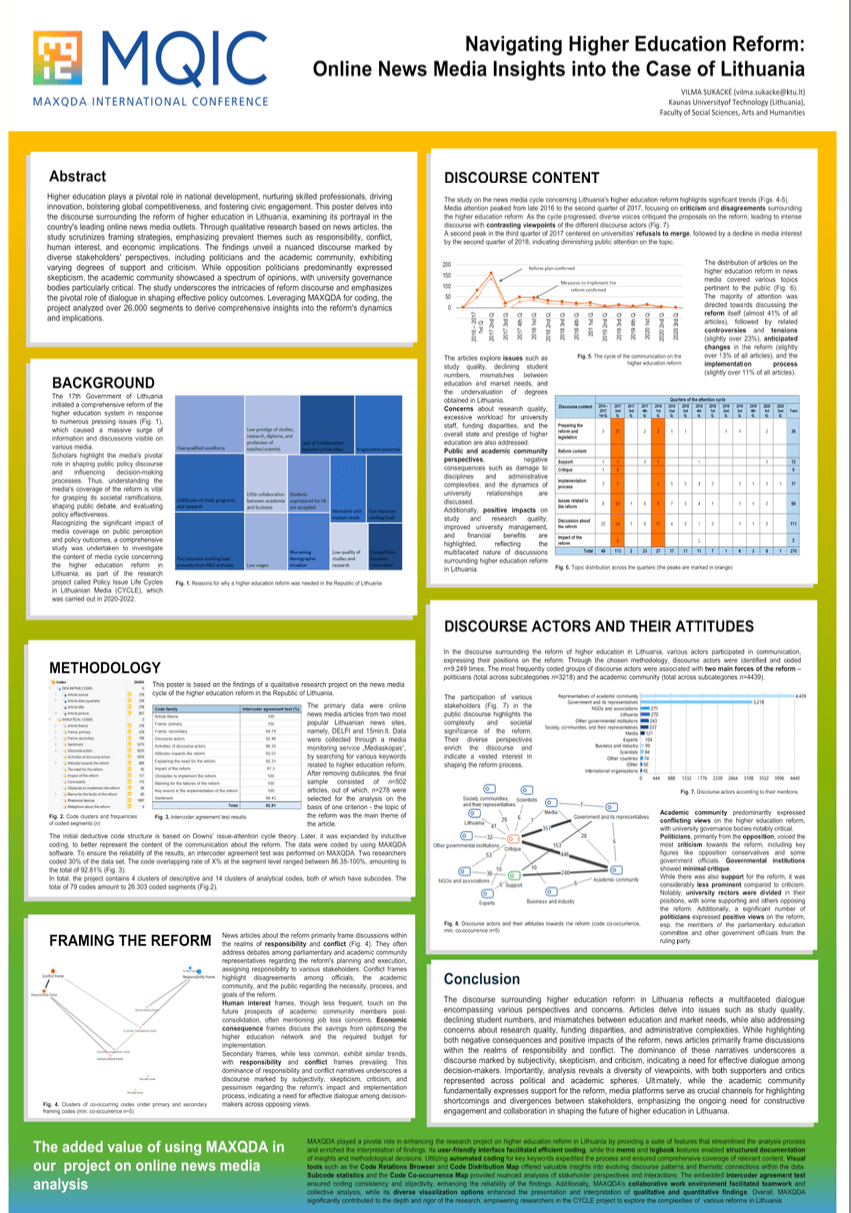MQIC Poster Session
Please note that you have to attend the conference in order to take part of the Poster Session. If your submission is accepted you will present your poster in person at the conference. Please send your poster ideas via email to mqic@maxqda.de
MAXQDA International Conference Poster Presentations and Awards
In this traditional MQIC event, researchers showcase their MAXQDA work in the form of a poster that highlights their projects. Accepted posters are presented at the MQIC Poster Session in the form of an exhibition. The event is a great possibility to present work to the other participants and network with them. Of course, there is also a chance to win the Best Poster Award. The accepted posters are displayed throughout the MQIC and each of the exhibited posters are published as a PDF file on the conference website.
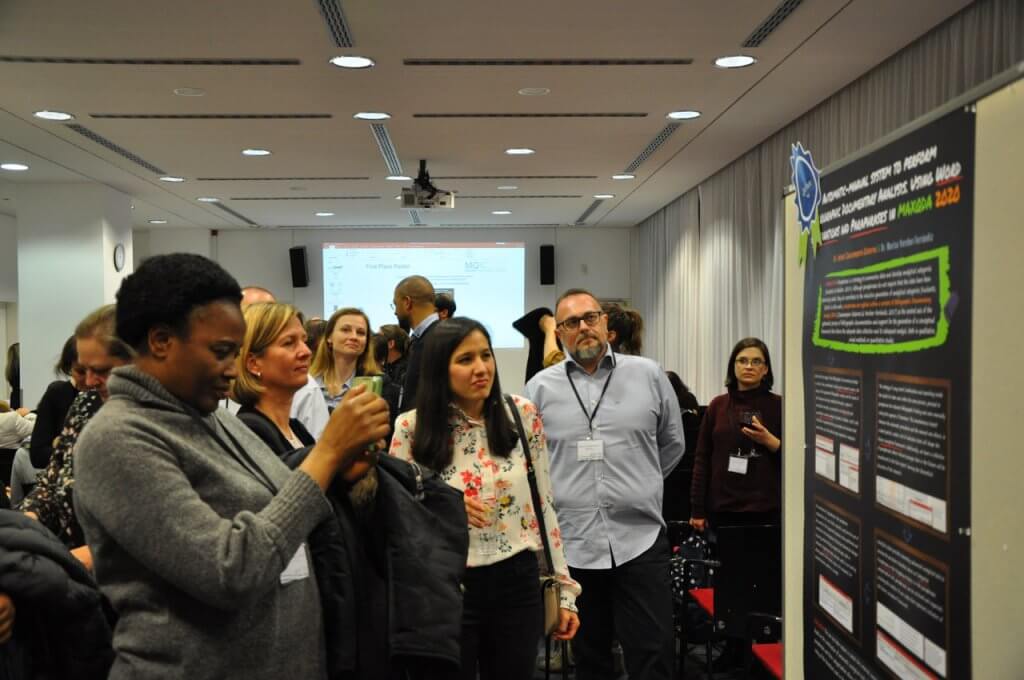
Poster Award
A cash prize of €500,00 EUR is awarded to the author of the winning poster. You must be present at the awards ceremony to win.
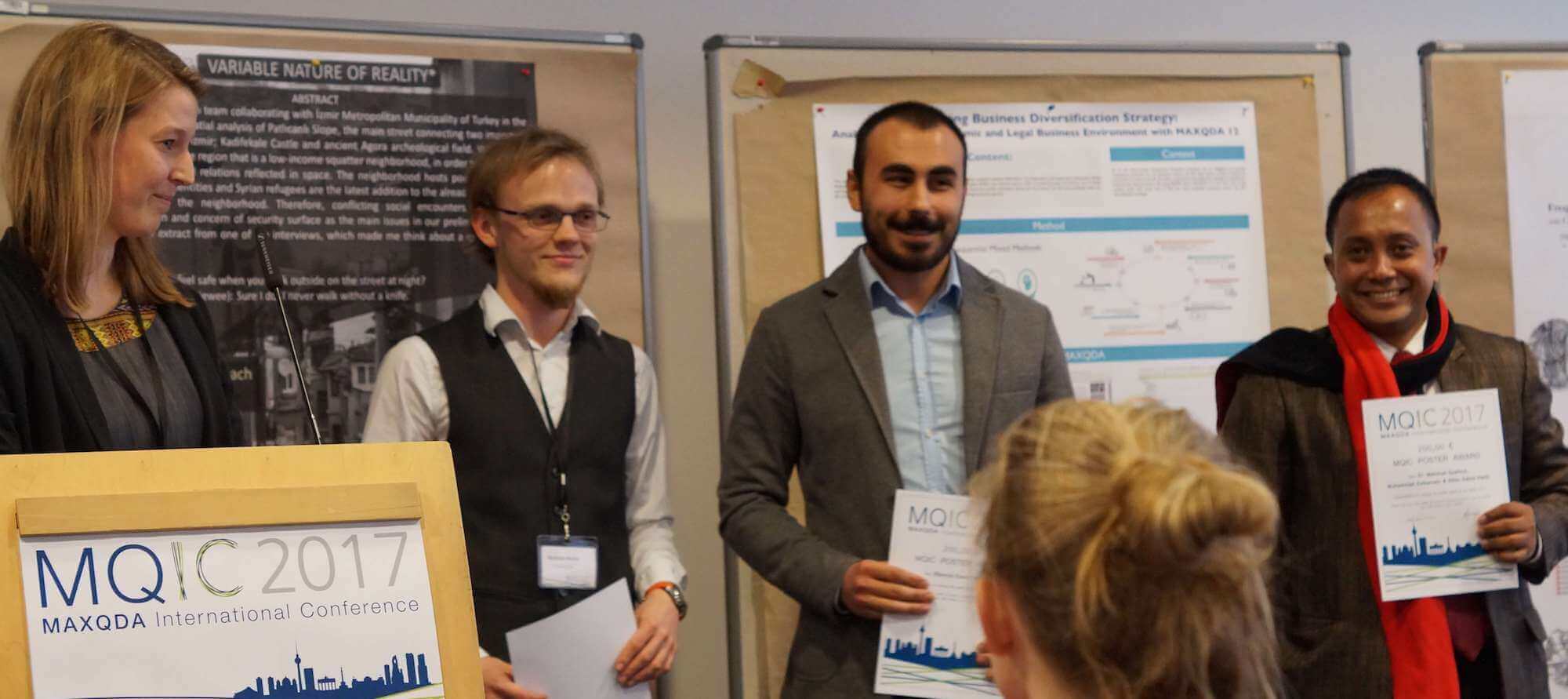
Type of Contributions
The poster’s focus should be on how you used MAXQDA in the data collection and analysis portions of your qualitative and/or mixed method research project(s). We also welcome posters about teaching and learning MAXQDA. Get creative – screenshots and innovative designs can help make your poster stand out!
´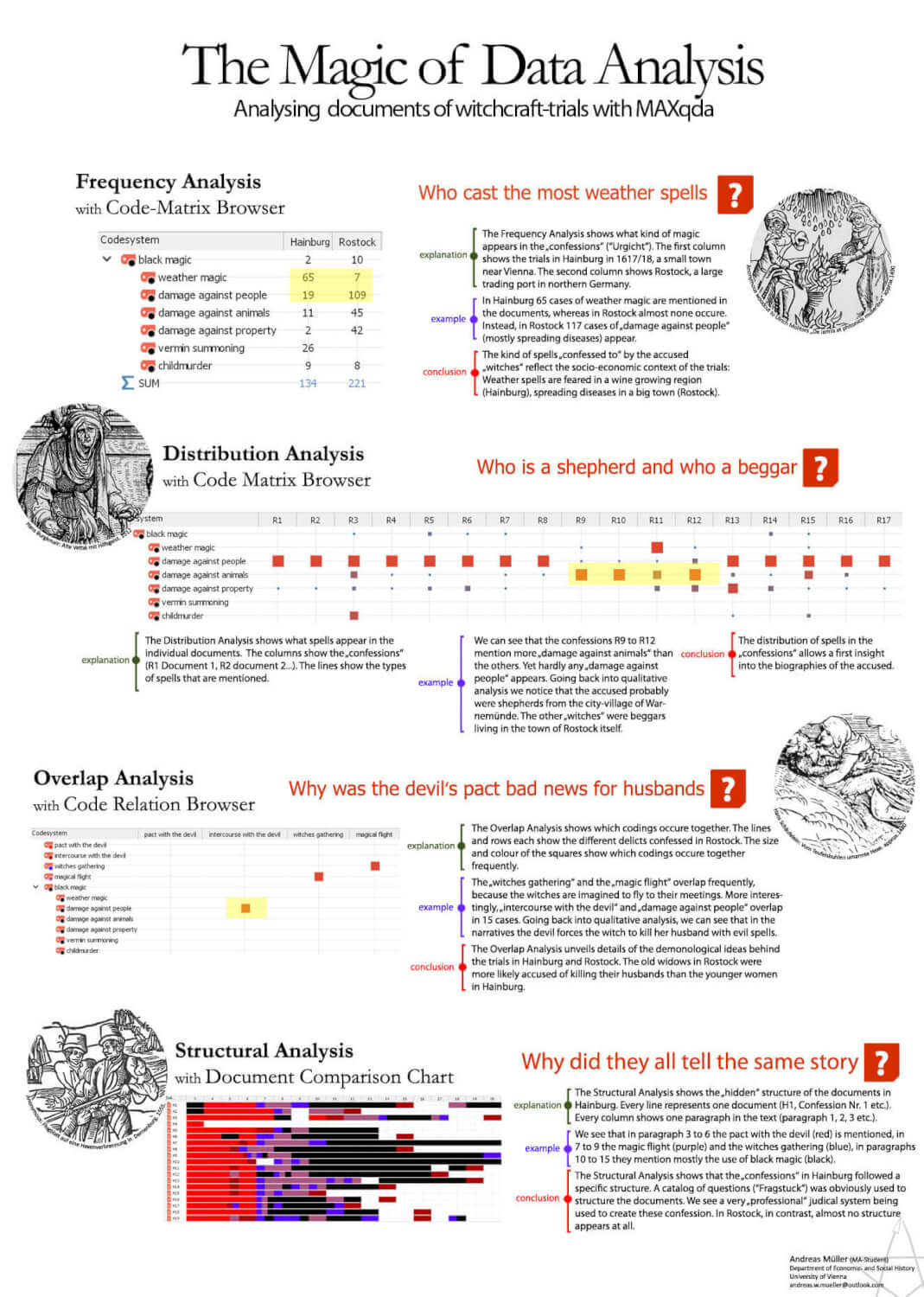
Selection Process
The MQIC Poster Presentation Selection Committee reviews the contributions and makes the final selection based on the following criteria:
- Quality of the methodological procedure
- relevance of the topic
- originality of the contribution
- clarity of presentation
- formal aspects of the presentation (orthography, citation, etc.)
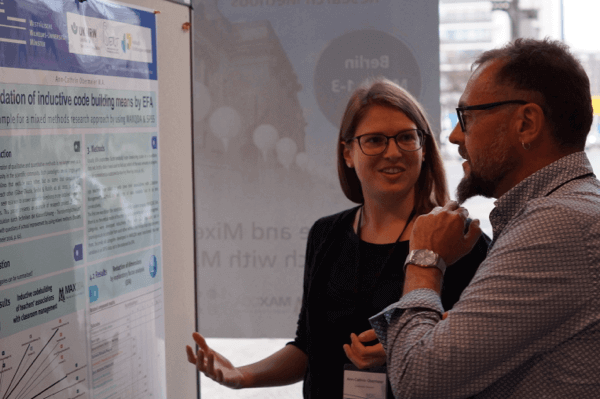
Submitted Posters
Dr. Antoni Casasempere Satorres & Dr. Marisa Vercher: Automatic-manual system to perform Bibliographic Documentary Analysis, with the support of Artificial Intelligence using MAXQDA 24
Dr. Antoni Casasempere Satorres & Dr. Marisa Vercher: Research design map with the support of Artificial Intelligence using MAXQDA 24
Jackie Greatorex & Jo Ireland: Indigenous knowledge: Comparing curricula from different regions – a common practice revamped by using MAXQDA
Anna Katharina Korn: Analyzing Data Together as a Team: User Experience of the MAXQDA TeamCloud
Marianna Espinós Blasco: Gender, Coloniality and Violence: Doing Visual Content & Visual Discourse Analysis with MAXQDA
Maike Zwergel & Marcus Heumann: MAXQDA as an instrument for international collaboration in research
Dhitinut Ratnapradipa: Mixed Methods Analysis on Flooding Risks to Inform Survey Development
